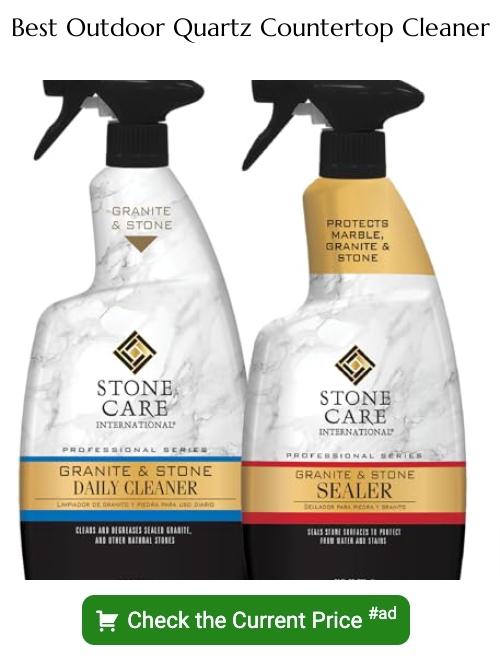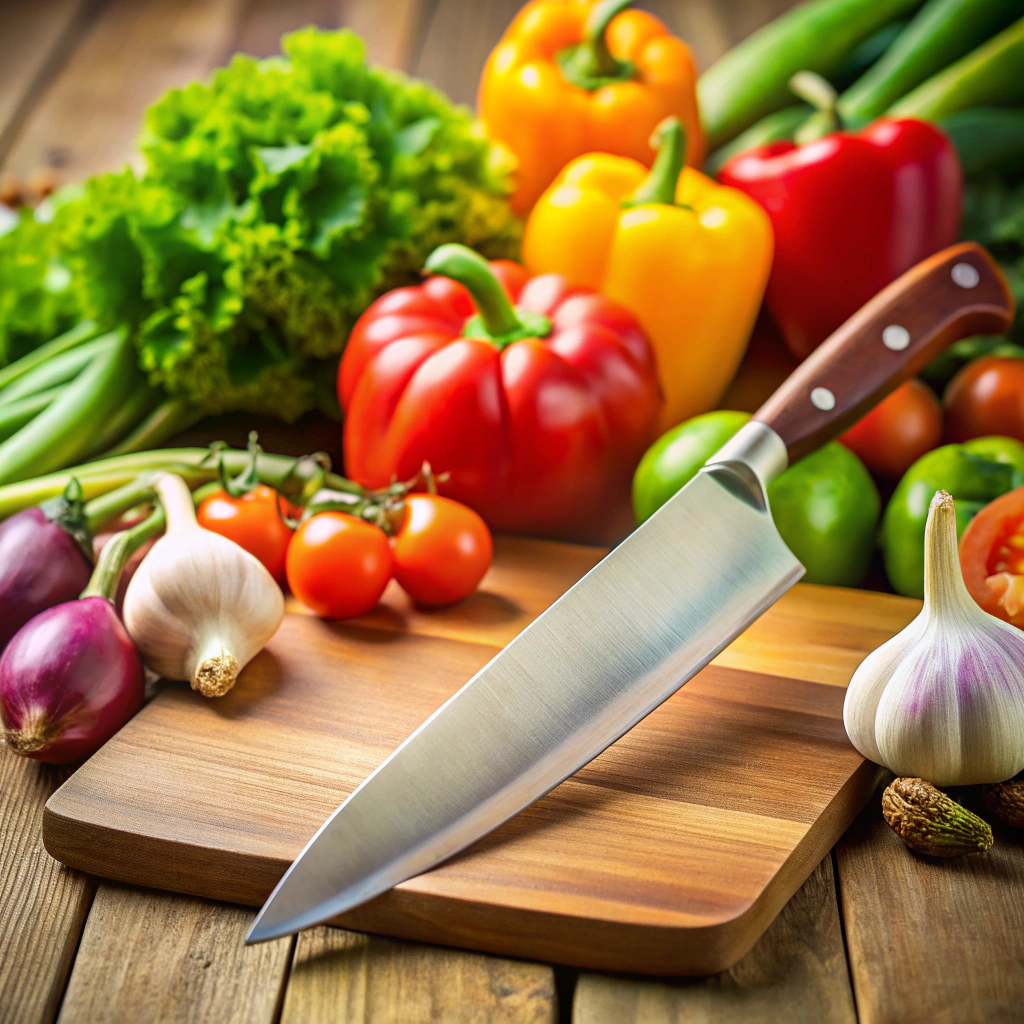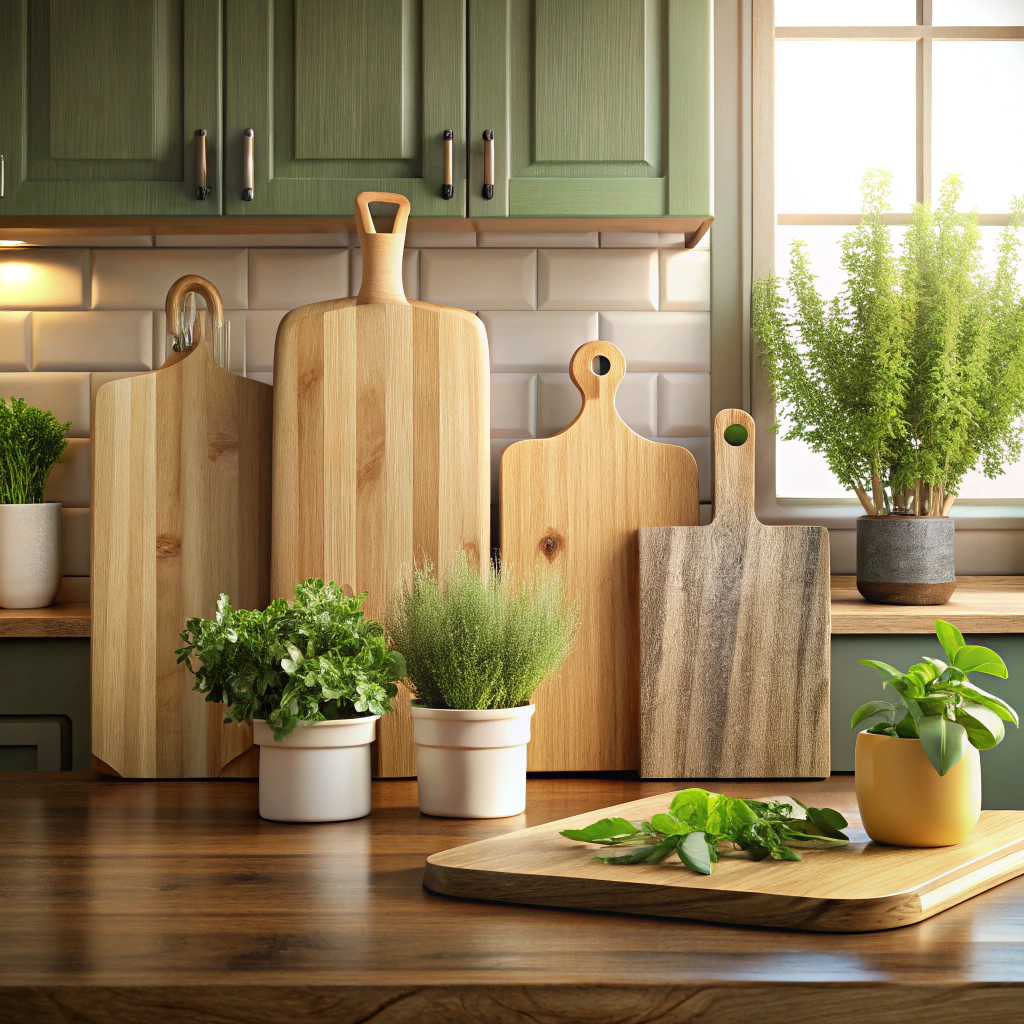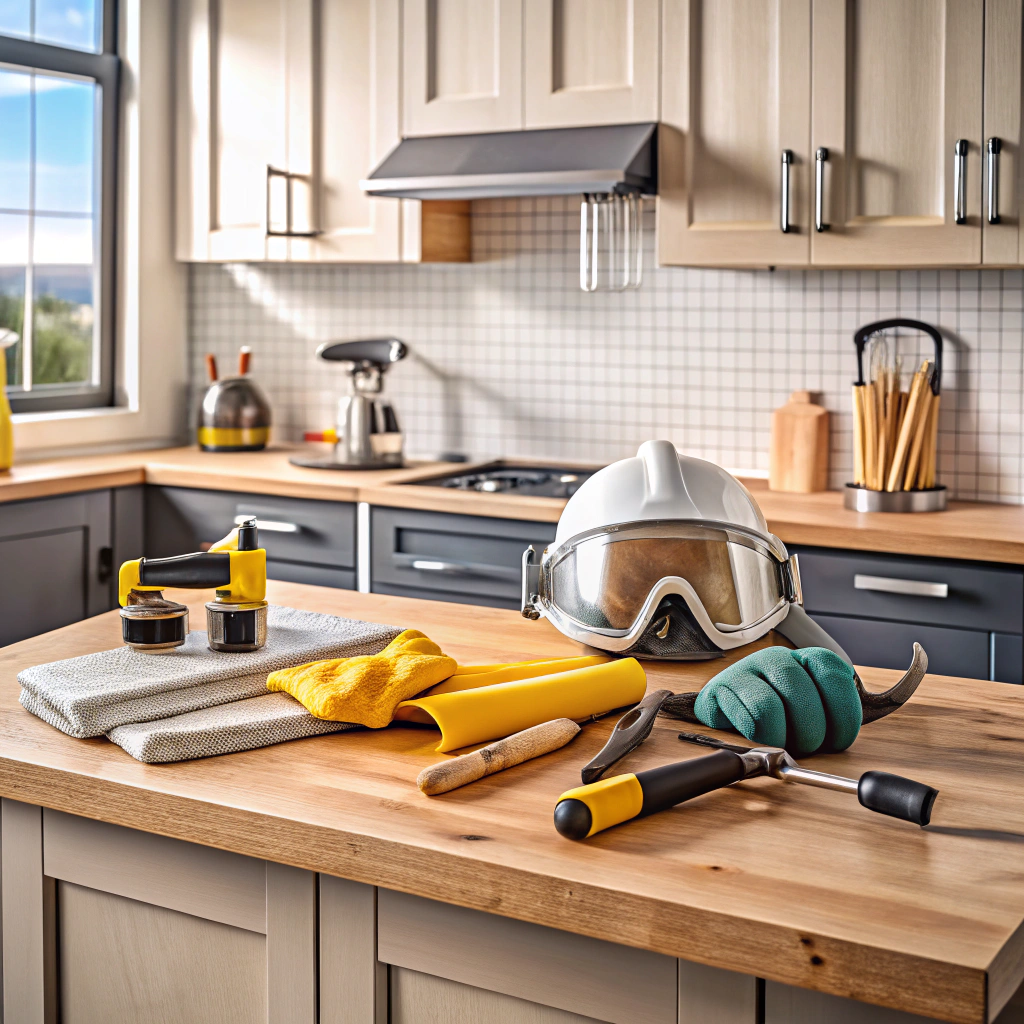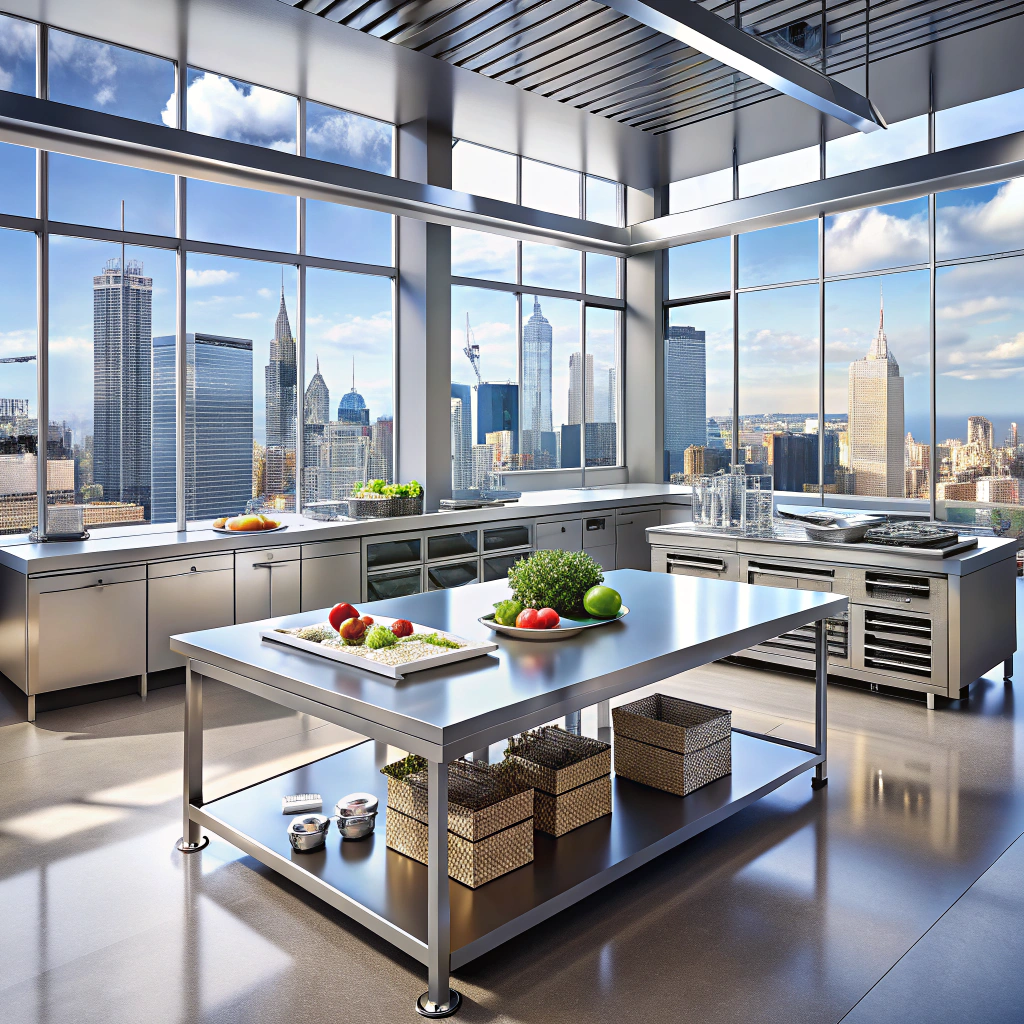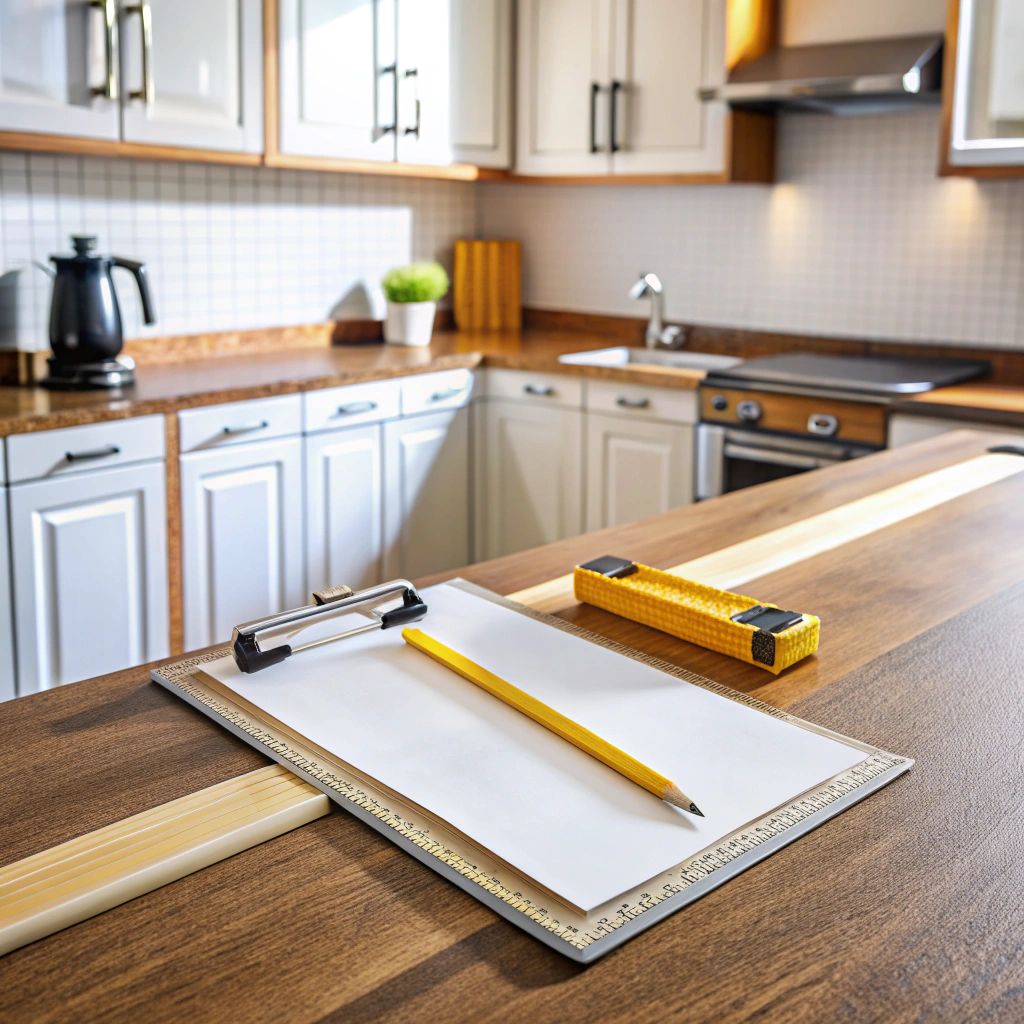Last updated on
Discover the benefits and drawbacks of quartz as a countertop material for your outdoor kitchen, ensuring you make an informed decision before investing in this popular option.
Quartz has been a popular choice for indoor kitchen countertops for many years now. Its durability and low maintenance make it an attractive option for homeowners.
But what about using quartz for outdoor kitchens? Can it withstand the harsh elements of nature and still maintain its beauty? In this article, we will explore whether quartz is a good option for outdoor kitchens and what factors to consider before making your decision. So, if you’re planning to build an outdoor kitchen or considering upgrading your existing one, keep reading to find out if quartz is the right choice for you!
What's Inside
Quartz Properties and Benefits
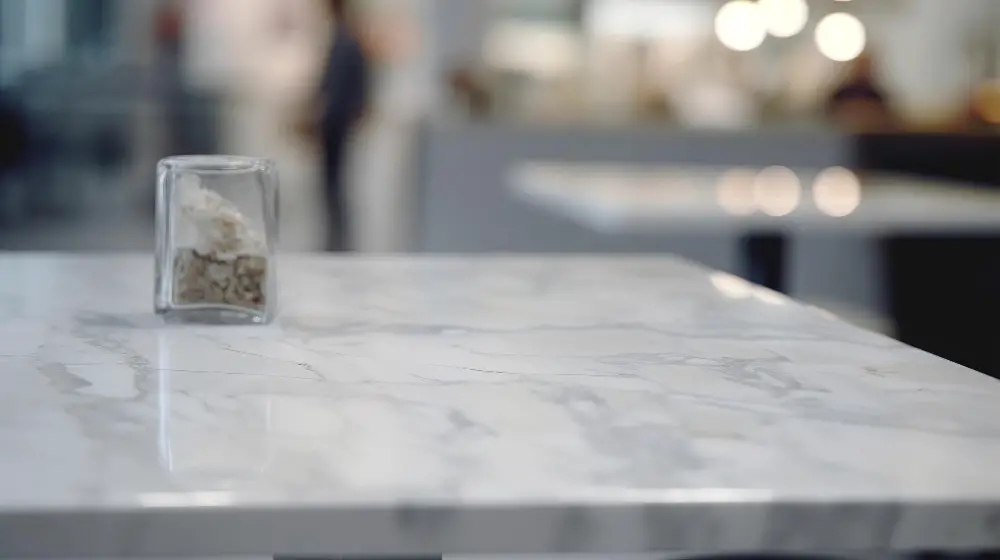
It has become increasingly popular in recent years due to its durability, low maintenance, and aesthetic appeal. Quartz countertops are nonporous, which means they do not absorb liquids or stains like other materials such as granite or marble.
This makes them ideal for outdoor kitchens where spills are common.
Another benefit of quartz is that it comes in a wide range of colors and patterns to suit any design style. From classic white to bold black hues, there’s a color option for every taste preference.
In addition to being aesthetically pleasing, quartz also offers excellent heat resistance properties making it perfect for cooking areas in outdoor kitchens where high temperatures are expected.
Overall the properties and benefits of quartz make it an attractive option when considering countertop materials for your outdoor kitchen project.
Nonporous Nature of Quartz
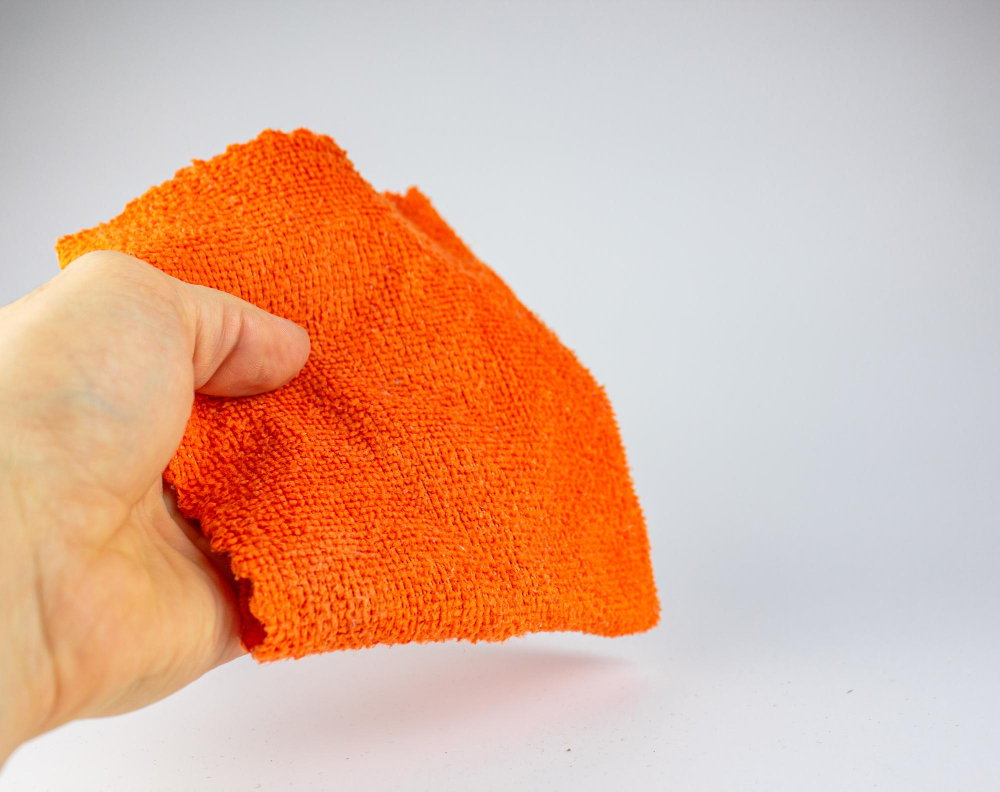
This property makes quartz an excellent choice for outdoor kitchens as it can withstand exposure to rain, humidity and other weather conditions without getting damaged. Unlike natural stones like granite and marble that are porous in nature, quartz countertops do not require sealing to prevent stains from spills of food or drinks.
The nonporous surface of quartz also makes cleaning easy and hassle-free. You can wipe off any spills with a damp cloth without worrying about the liquid seeping into the countertop’s surface.
The absence of pores also prevents bacteria growth on the countertop’s surface making it hygienic for food preparation.
Outdoor Kitchen Requirements
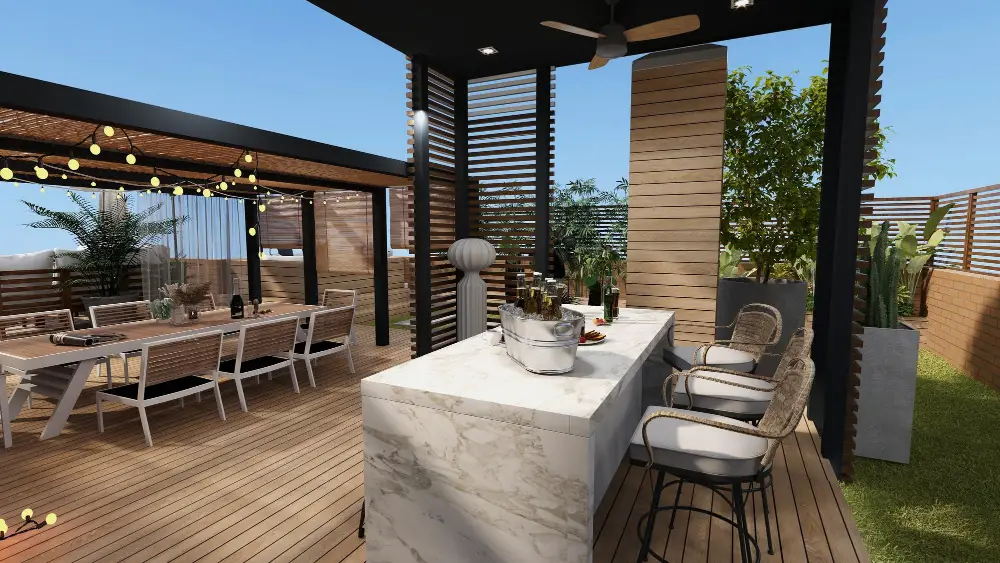
First and foremost, your outdoor kitchen should be located in an area that is protected from the elements. This means having a roof or pergola overhead to shield your appliances and countertops from rain, snow, and direct sunlight.
Secondly, you need to ensure that your outdoor kitchen has proper drainage systems in place. Water can easily accumulate on surfaces during heavy rainfall or when cleaning up after cooking sessions.
Without adequate drainage channels installed beneath the countertops’ surface level water can cause damage over time.
Lastly but not least important is selecting materials suitable for outdoors use such as stainless steel appliances which are rust-resistant; weatherproof cabinets made of teak wood or marine-grade polymer; flooring options like concrete pavers with slip-resistant finishes for safety purposes.
Comparing Quartz With Other Materials
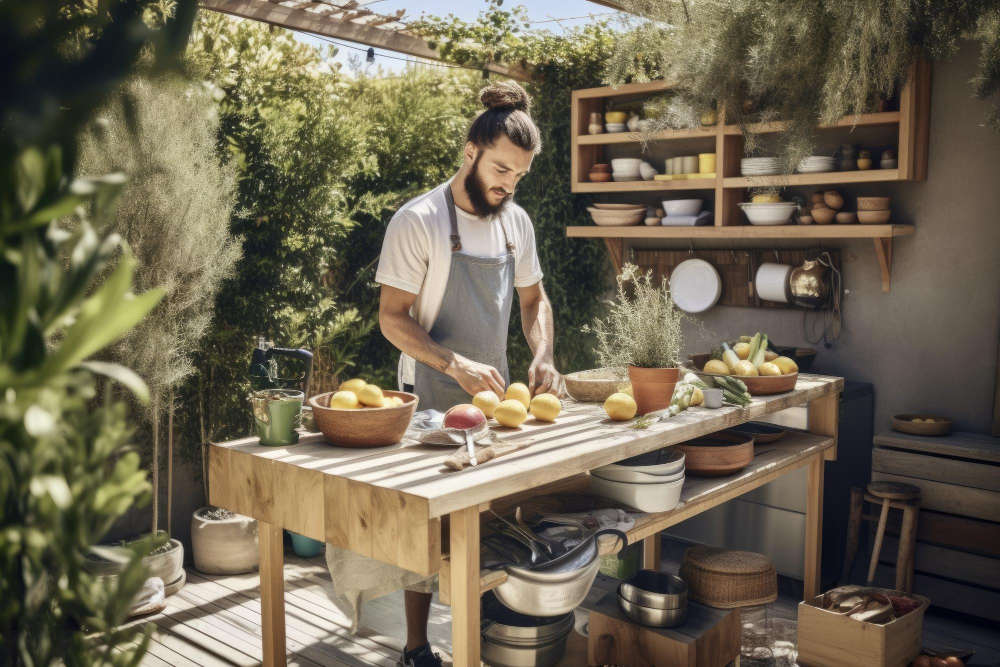
Granite, concrete, and tile are some of the popular options. However, quartz has gained popularity in recent years due to its durability and low maintenance requirements.
Compared with granite countertops that require regular sealing or concrete surfaces that can crack over time due to weather changes; quartz is a non-porous material that does not require any sealing or special care. It is also resistant to scratches and stains making it an ideal choice for outdoor kitchens where spills and accidents may occur frequently.
Tile surfaces can be slippery when wet which makes them less than ideal for outdoor use while wood requires frequent oiling or staining which can be time-consuming. Quartz offers a perfect balance between aesthetics and functionality as it comes in various colors, patterns, textures allowing you the freedom of customization without compromising on performance.
Durability of Quartz in Outdoor Settings
How does it hold up in outdoor settings? The good news is that quartz can withstand the elements of nature quite well. It’s resistant to scratches, chips, and cracks caused by impact or heavy use.
Quartz doesn’t absorb moisture like other natural stones such as granite or marble do; this makes it less prone to cracking due to freeze-thaw cycles.
However, while quartz is durable enough for outdoor kitchens with proper care and maintenance practices in place; there are still some factors you need to consider before choosing this material over others. For instance: extreme temperatures can cause thermal shock which may lead to cracks on the surface of your countertop if not handled properly.
Quartz Resistance to Weather Conditions
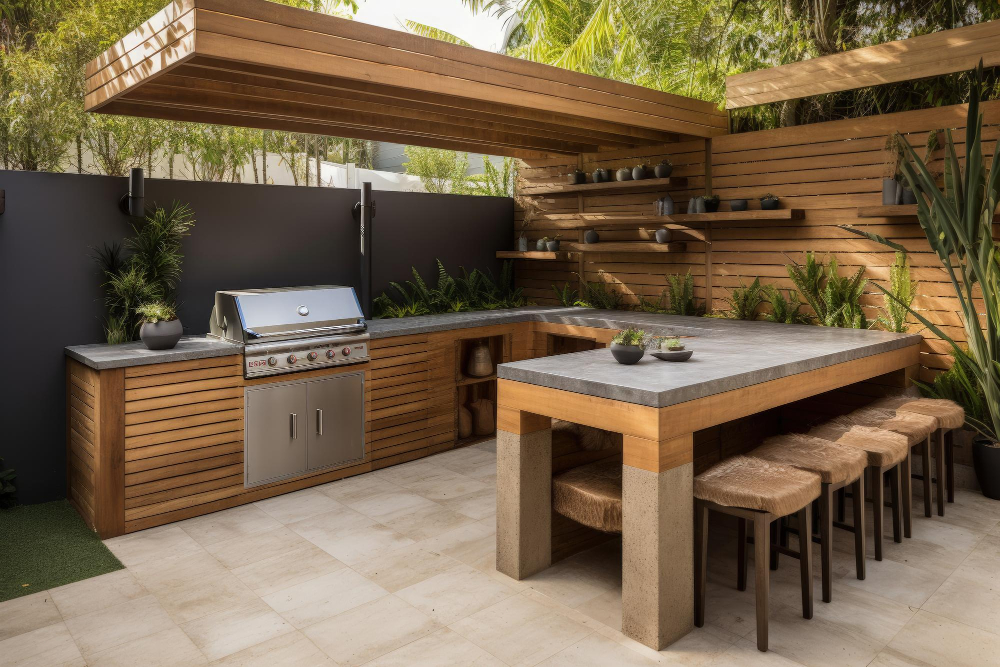
It is resistant to heat, cold, and moisture, making it an ideal choice for outdoor kitchens. Unlike natural stones like granite or marble that are porous and prone to damage from water absorption or freezing temperatures, quartz does not absorb water due to its nonporous nature.
Moreover, quartz countertops have excellent resistance against UV rays which means they won’t fade or discolor over time when exposed to sunlight. This feature makes them perfect for outdoor use where the countertop will be exposed directly under the sun.
However, despite being highly resistant against weather conditions and UV rays exposure; it’s important not to overlook proper maintenance of your quartz countertops in order for them last longer in your outdoor kitchen setting. Regular cleaning with mild soap and warm water should suffice but avoid using abrasive cleaners as they may scratch the surface of your countertop.
UV Protection for Quartz Surfaces
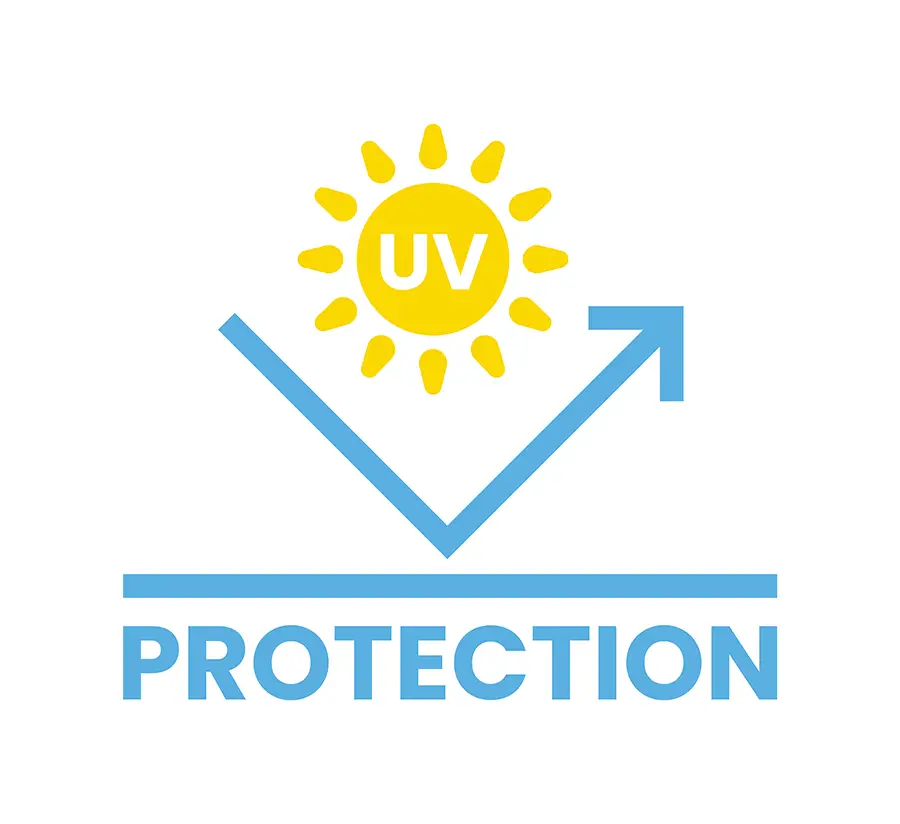
Over time, prolonged exposure to sunlight can cause discoloration and fading of some materials. However, this is not the case with quartz countertops.
Quartz surfaces are engineered with a protective layer that prevents them from fading or yellowing due to UV exposure. This means that even if your outdoor kitchen receives direct sunlight for several hours each day, your quartz countertop will maintain its original color and appearance.
It’s important to note that while most manufacturers offer some level of UV protection on their products, it’s always best practice to check with your supplier before making a purchase decision. They can advise you on which specific types of quartz have higher levels of resistance against sun damage and recommend any additional measures you may need based on where you live or how much sun exposure your outdoor kitchen gets.
Heat Resistance of Quartz
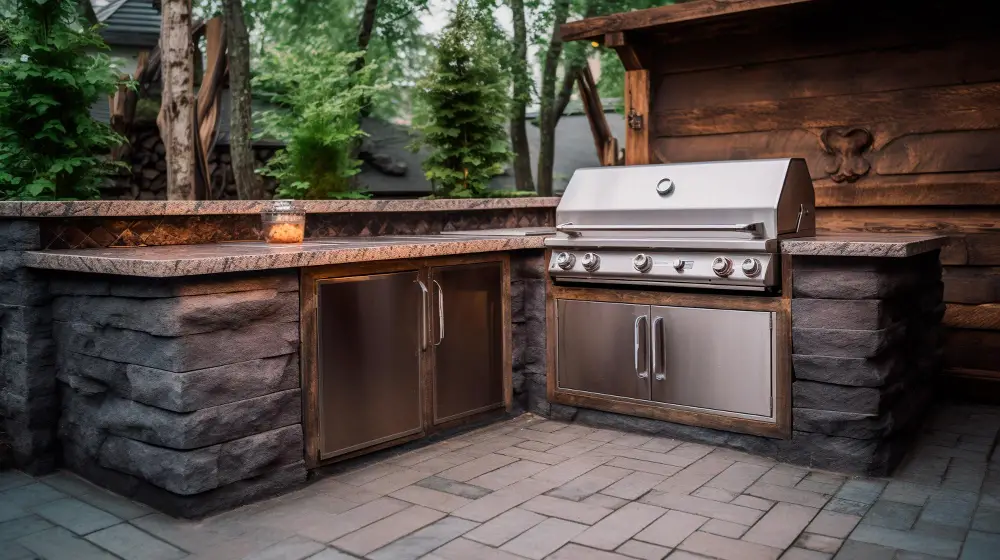
Quartz countertops are known for their ability to withstand high temperatures, making them an excellent choice for outdoor cooking areas. Unlike other materials such as wood or laminate, quartz does not warp or crack under extreme heat.
Quartz can handle temperatures up to 150 degrees Celsius without any damage. However, it’s essential to note that prolonged exposure to high heat can cause discoloration and even cracking in some cases.
Therefore, it’s recommended that you use trivets or hot pads when placing hot pots and pans on the surface.
It’s also important not to expose quartz countertops directly under intense sunlight during peak hours of the day as this may lead them susceptible to thermal shock which could result in cracks on its surface.
Customization Options for Quartz
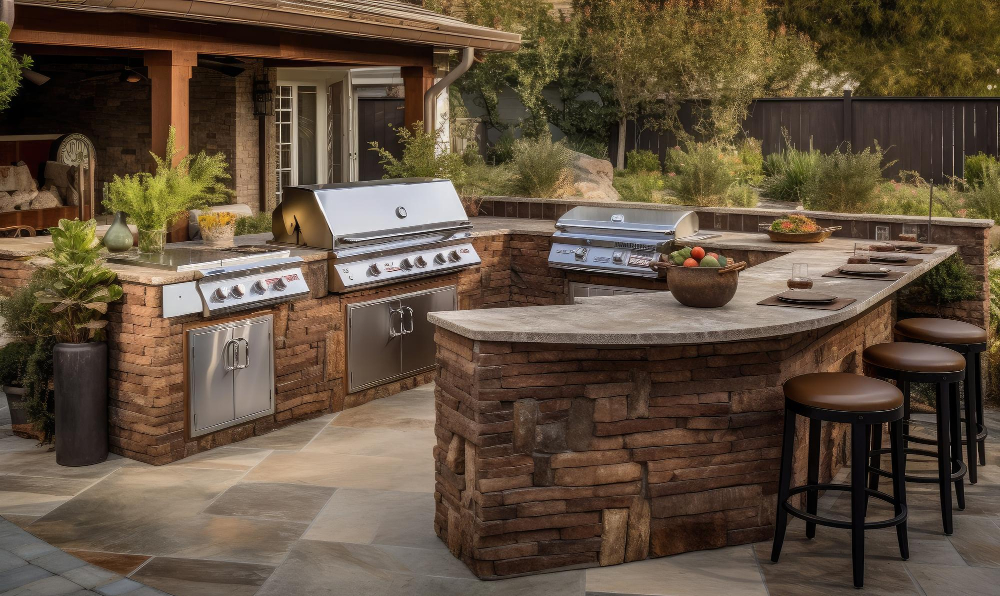
Quartz can be customized to fit any design style, color scheme, or pattern you desire. The manufacturing process allows for a wide range of customization options that are not possible with natural stone materials.
Quartz countertops come in a variety of colors and patterns that mimic the look and feel of natural stones like granite or marble. You can choose from solid colors, speckled patterns, veined designs, and even textured finishes to create a unique look for your outdoor kitchen.
Another great feature is that quartz slabs can be cut into different shapes and sizes to fit any space perfectly. This means you don’t have to settle for standard countertop dimensions if they don’t work well with your outdoor kitchen layout.
Edge profiles on quartz countertops can also be customized according to personal preference – from simple straight edges to more elaborate bullnose or ogee edges – giving homeowners complete control over their final product’s appearance.
Maintenance of Quartz Countertops
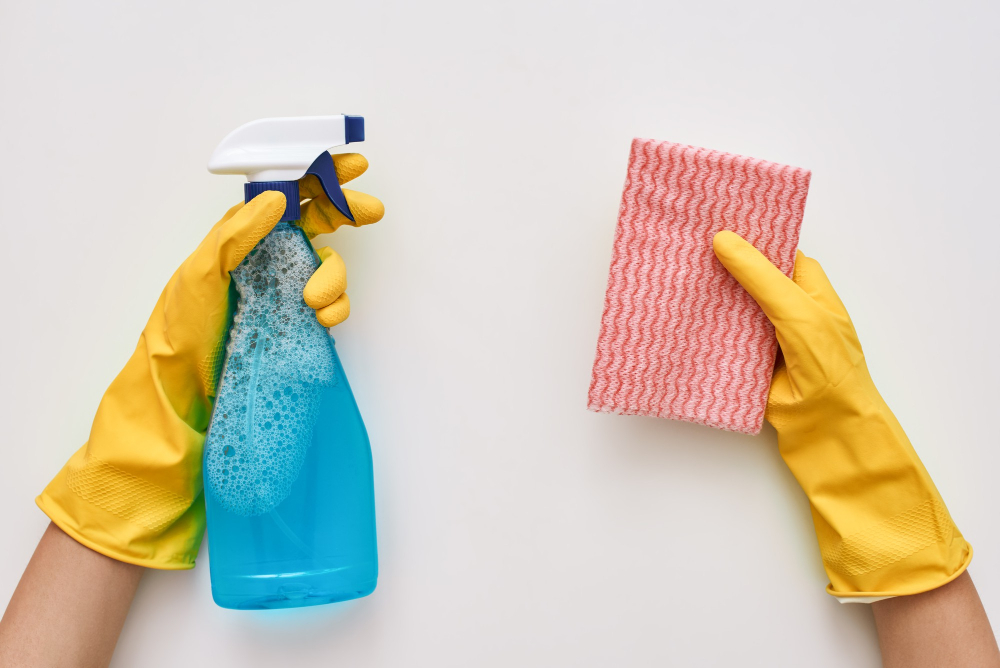
They are non-porous, which means they do not absorb liquids and stains like other materials such as granite or marble. This makes them easy to clean with just soap and water.
However, outdoor kitchens require more attention when it comes to maintenance due to exposure to harsh weather conditions. To keep your quartz countertops looking new for years, you need to take some extra precautions.
Firstly, avoid using abrasive cleaners or scrubbers that can scratch the surface of your countertop. Instead, use a soft cloth or sponge with mild detergent and warm water for regular cleaning.
Secondly, protect your countertop from direct sunlight by installing an awning over it if possible. Direct sunlight can cause fading in color over time on any material including quartz surfaces.
Lastly but most importantly ensure that you seal all edges properly during installation as this will prevent moisture from seeping into the seams between slabs which could lead to mold growth underneath the surface.
Preserving Quartz Countertops in Outdoor Kitchens
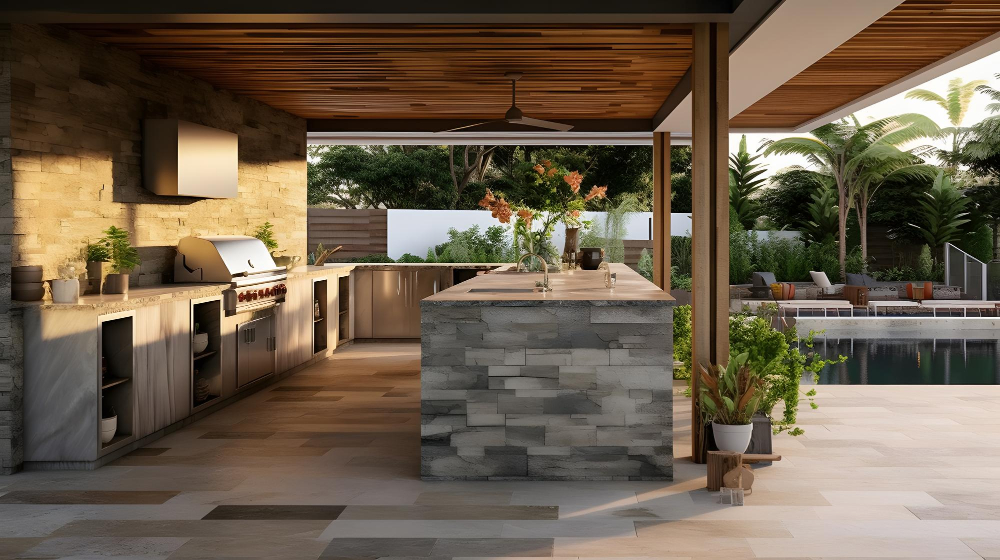
In outdoor kitchens, where the countertops are exposed to harsh weather conditions such as rain, sun exposure, and extreme temperatures, it’s essential to take extra precautions.
To keep your quartz countertop looking new for years to come in an outdoor kitchen setting:
1. Clean up spills immediately: Wipe away any spills or stains on the surface of your countertop as soon as possible using a soft cloth or sponge.
2. Use mild cleaning agents: Avoid using abrasive cleaners that can scratch the surface of your quartz countertop.
Instead, use mild soap with warm water for regular cleaning.
3. Protect from direct sunlight: Direct sunlight can cause fading or discoloration over time; therefore consider installing shade structures like umbrellas or pergolas above your outdoor kitchen area.
4. Cover when not in use: When you’re not using your outdoor kitchen area cover it with protective covers made specifically for this purpose which will protect against dust accumulation and other debris that may damage surfaces over time.
Expert Advice On Quartz Selection

A professional can help you choose a high-quality quartz that will withstand the harsh outdoor elements and still look great for years to come.
One of the most important factors to consider when selecting quartz for an outdoor kitchen is its resistance to UV rays. Exposure to sunlight can cause discoloration or fading in some types of quartz, so it’s essential to choose a product with adequate UV protection.
Another critical factor is heat resistance. Your countertop should be able to handle hot pots and pans without cracking or melting under high temperatures.
Make sure you select a type of quartz that has been specifically designed for use in outdoor kitchens and has excellent heat-resistant properties.
Customization options are also worth considering when choosing your ideal countertop material. Quartz offers various colors, patterns, finishes as well as edge profiles which allow homeowners more flexibility in designing their dream space.
Proper Installation Techniques

The installation process should be carried out by professionals who have experience working with outdoor kitchens and understand the unique challenges that come with it.
One of the most important factors to consider during installation is ensuring proper support for your countertop. Outdoor countertops are exposed to harsh weather conditions, which can cause them to expand or contract over time.
To prevent cracking or damage, ensure that your countertop has adequate support from underneath.
Another crucial aspect of installing quartz in an outdoor kitchen is sealing the edges properly. This will help protect against moisture penetration and keep water from seeping into any gaps between the counter and cabinets below.
Make sure you choose a reputable installer who uses high-quality materials for their work. A professional installer will know how to handle any issues that may arise during installation while ensuring your new countertop looks beautiful and functions perfectly for years to come.
Ideal Outdoor Applications for Quartz
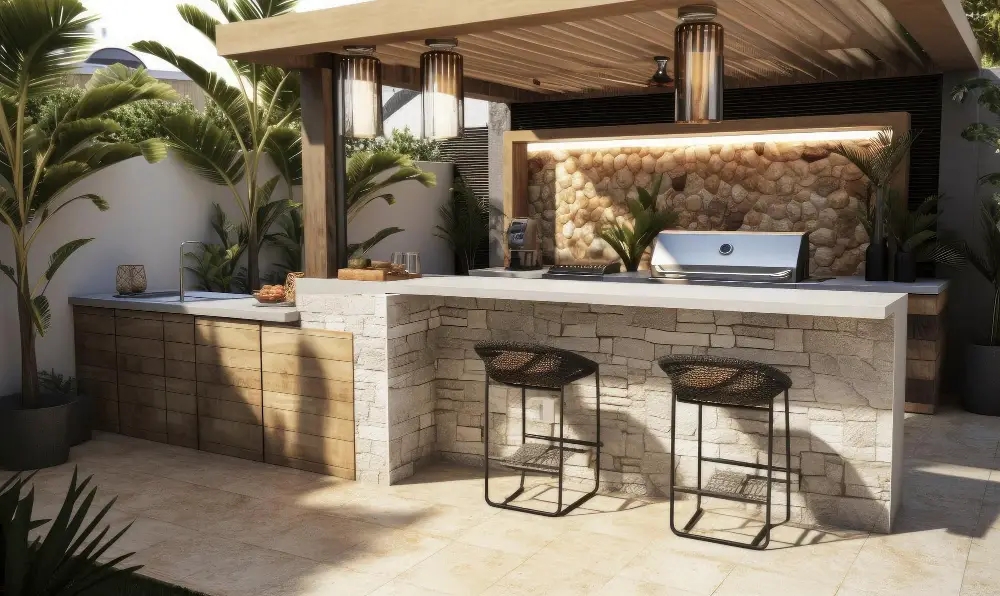
Its durability and resistance to weather conditions make it an excellent choice for outdoor kitchens, but it’s not limited to just countertops. Quartz can also be used for backsplashes, flooring, and even as cladding on the exterior of your home.
When selecting quartz for your outdoor kitchen or other applications, consider the color and pattern options available. Lighter colors may show stains more easily than darker ones; however, they reflect heat better than dark colors which absorb heat quickly.
Another factor to consider when choosing quartz is its thickness. Thicker slabs are more durable and less likely to crack under pressure or extreme temperatures.
Can Quartz Countertops Be Used Outside?

Not all types of quartz are suitable for outdoor use. It’s important to choose a high-quality quartz that is specifically designed and tested for outdoor applications.
Outdoor environments expose materials to harsh weather conditions such as rain, snow, heat and UV rays from the sun. These elements can cause damage or discoloration over time if the material isn’t resistant enough.
Therefore it’s essential to select an appropriate type of quartz that has been engineered with these factors in mind.
When selecting your countertop material for an outdoor kitchen project make sure you consult with experts who have experience working on similar projects before making any decisions about which type of stone will work best given your specific needs and budget constraints.
Which Quartz Is Suitable for Outdoor Spaces?
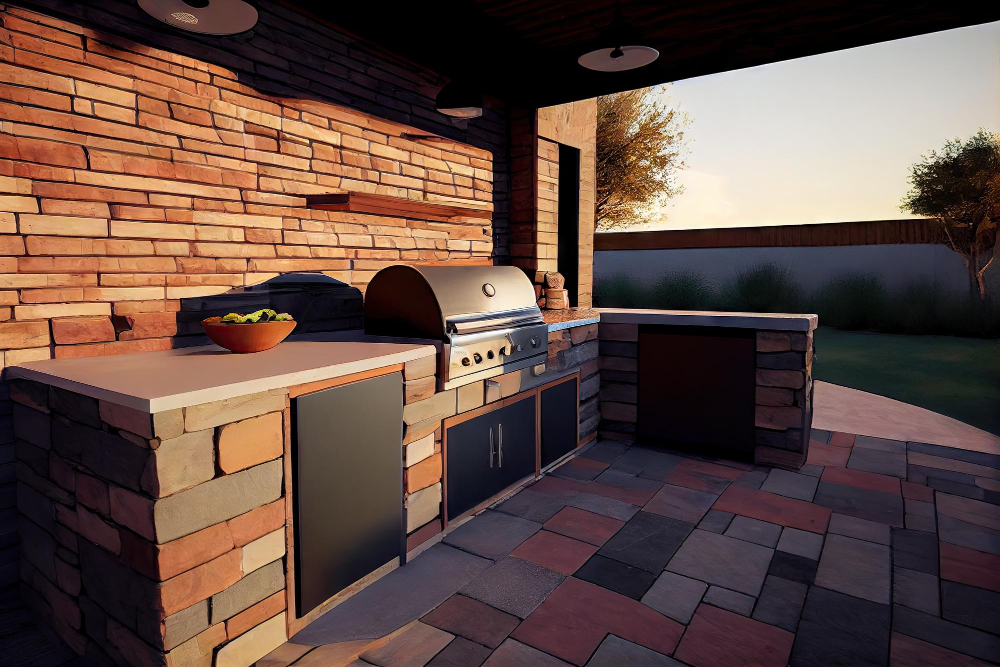
Some varieties may be more suitable than others in terms of durability and resistance to weather conditions. It’s important to choose a high-quality quartz that can withstand the harsh elements of nature without losing its beauty or functionality.
One factor to consider is the color and pattern of the quartz. Lighter colors tend to show stains more easily, while darker colors may fade over time due to exposure from UV rays.
Therefore, it’s recommended that you opt for darker shades with minimal patterns if you want your countertop surface looking great for years.
Another consideration is choosing a brand with proven experience in producing quality outdoor-grade countertops such as Caesarstone or Silestone which have been tested under extreme weather conditions like heatwaves and freezing temperatures.
Case Studies of Outdoor Kitchens With Quartz
Many homeowners have opted for quartz countertops in their outdoor kitchens and have been pleased with the results.
One such example is a family who built an expansive outdoor kitchen on their patio. They chose to install white quartz countertops that complemented the natural stone flooring and stainless steel appliances.
The nonporous nature of the material made it easy to clean up spills from cooking or entertaining guests, while its heat resistance allowed them to place hot pots and pans directly onto the surface without any damage.
Another homeowner installed black quartz countertops in their poolside bar area, which was exposed to direct sunlight for most of the day. Despite this exposure, they found that there was no fading or discoloration over time due to UV protection technology used during manufacturing.
Pros and Cons of Quartz in Outdoor Kitchens

Let’s take a closer look at some of the advantages and disadvantages.
Pros:
- Durability: Quartz is one of the most durable materials available for countertops. It can withstand heavy use, extreme temperatures, and harsh weather conditions.
- Low Maintenance: Unlike natural stone countertops that require regular sealing to prevent staining or etching from acidic substances like lemon juice or vinegar, quartz does not need any special maintenance.
- Nonporous Nature: The non-porous nature of quartz makes it resistant to bacteria growth which is essential when preparing food outdoors.
- Customization Options: With a wide range of colors and patterns available in the market today, you can easily find a design that suits your style.
Cons:
- Costly Investment: Compared to other countertop materials such as concrete or tile; quartz tends to be more expensive due its durability features
- Limited Heat Resistance : Although heat-resistant up-to certain temperature limits ,quartz may crack if exposed directly under high heat sources like grills etc
- Installation Issues : Due its heavyweight , installation process requires professional help
Overall choosing whether Quartz Countertops are suitable for your outdoor kitchen depends on various factors including budget constraints , personal preferences & requirements.
FAQ
Is granite or quartz better for outdoor kitchen?
Granite is better for outdoor kitchen countertops as it is durable and well-suited for outdoor conditions.
What is the best surface for an outdoor kitchen?
The best surface for an outdoor kitchen is a countertop made of natural stone, concrete, or tile due to their durability in outdoor conditions.
What is the best stone for outdoor kitchen?
The best stone for an outdoor kitchen is granite, as it is durable, resistant to stains, and relatively easy to maintain.
What is the downside of quartz countertops?
The downside of quartz countertops includes their high price and vulnerability to heat damage, which can cause irreparable damage from hot pans.
How does the durability of quartz compare to other materials in outdoor kitchen settings?
Compared to other materials in outdoor kitchen settings, quartz demonstrates higher durability due to its resistance to stains, scratches, and heat.
What factors should be considered when choosing countertops for an outdoor kitchen?
When choosing countertops for an outdoor kitchen, consider factors such as durability, heat resistance, UV resistance, stain resistance, maintenance requirements, and aesthetics.
How does the performance of quartz countertops change due to weather exposure in an outdoor kitchen environment?
Quartz countertops experience reduced performance in outdoor kitchen environments due to weather exposure, including potential fading and discoloration.
